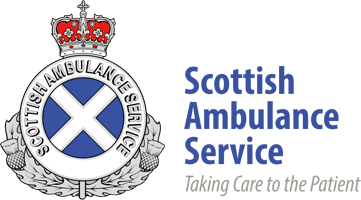
SAS to carry out simulation study as part of national drone project
The Scottish Ambulance Service (SAS) is set to carry out vital research with members of the public to test how drones can be used in response to cardiac arrests.
Project CAELUS, funded by Innovate UK, are a group of organisations aiming to develop the UK’s first drone enabled medical logistics network. SAS, a key partner in the project, is aiming to carry out a simulation study later in the month to better understand the feasibility of delivering an Automated External Defibrillators (AEDs) via drone technology.
Every year over 8000 people in Scotland have an Out of Hospital Cardiac (OHCA) arrest. This simulation study will investigate bystander interaction with the drone and also explore the protocols required to support SAS call handlers in navigating bystanders to a drone during simulated scenarios of OHCAs.
During each simulated OHCA scenario, a group of participants will be given instructions through a telephone compared to another group of participants who will be given video assisted guidance to retrieve a nearby drone-delivered AED. This study is building on existing research domestically and internationally, to better understand how drones could be used by an ambulance service in the future.
SAS chief Executive Michael Dickson said: “The entire health service, including here at SAS, is always looking at ways to innovate and find new ways of providing life-saving care. Drone delivery of AEDs to Out of Hospital Cardiac Arrests (OHCA) is being investigated in several parts of the world, especially looking at how this could be used at remote and rural areas or areas of extreme urban congestion.
“This study will provide us with additional evidence to assess if drones could provide value to the Scottish Ambulance Service in the future. This innovative scheme has the potential to benefit communities across Scotland, including those in remote and rural areas. We look forward to working with our partners at AGS and the CAELUS project on developing it further.”
A number of live flight trials are planned across the country later this year as part of CAELUS.
Fiona Smith, Project CAELUS director said: “We have been delighted to work with SAS on this study. Project CAELUS is looking forward to continuing the great work with a several key partners to showcase the potential to benefit communities across Scotland and provide equity of care to remote and rural areas.”
Karen Bell, National Innovation Programme Lead, CAELUS - NHS Grampian, said: “This is exciting work being delivered by SAS to explore how this technology could change the response to an emergency call to an out of hospital cardiac arrest in the future. Working in the NHS Innovation Space, NHS Grampian as the Lead NHS Board in the CAELUS consortia have welcomed the opportunity to work with SAS on this novel approach to delivering care.”
Contact Information
Scottish Ambulance Press Office
Notes to editors
Notes
- The study will commence on July 22 in Edinburgh.
- Participants were recruited following a SAS request online
- The simulation scenario will begin in the early stages of an OHCA (prior to 999 call).
- SAS to carry out simulation study as part of national drone project - YouTube
- A multi-disciplinary group has been formed within the Ambulance Service who will oversee the progress and planning of the simulation study. This group involves clinical, operational and managerial grade staff
- Simulations will be recorded using fixed and body worn cameras.
- SAS is working on detailed data modelling with Strathclyde University to provide us with further analysis for the overall potential of drone technology as an additional resource.
- AGS Airports, which owns and manages Aberdeen, Glasgow and Southampton airports, is leading the CAELUS consortium. NHS Grampian is the lead health board
- Project CAELUS recently was awarded Most Innovative Transport Project of the Year at this year’s Scottish Transport Awards in Glasgow
